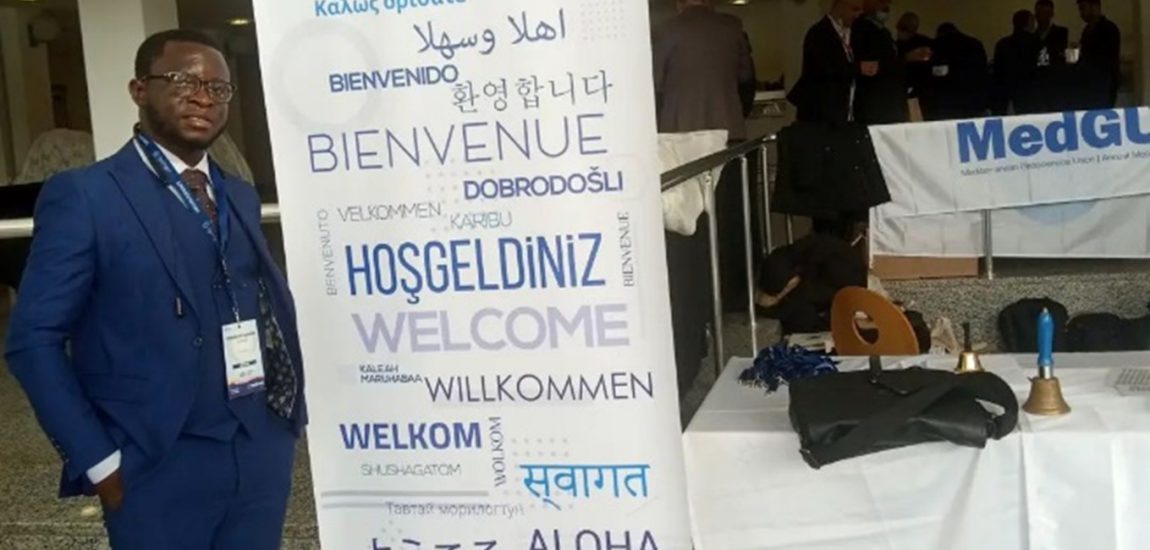
An Ambassador at MedGU-21
Mediterranean Geosciences Union Annual Meeting (MedGU-21), Istanbul, 25-28 November 2021
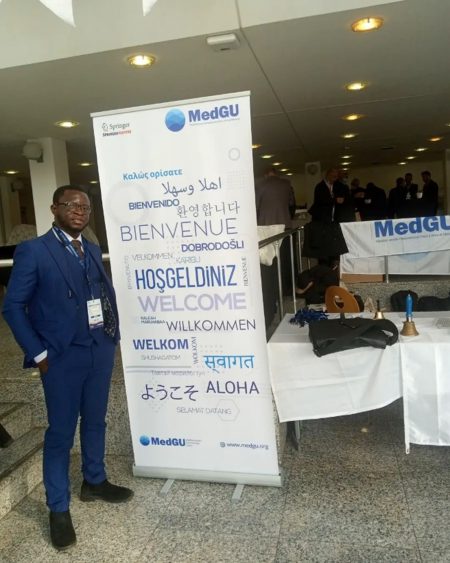
It was such an exciting time at the Mediterranean Geosciences Union Annual Meeting- 2021 (MedGU-21) held in the lively city of Istanbul, Turkey from 25 – 28 November 2021. MedGU-21 was born from the remarkable success of the first three meetings of the Conference of the Arabian Journal of Geosciences (CAJG). Previously, CAJG was skewed towards the scope of the Arabian Journal of Geosciences and thus, attracted only geoscientists working in those areas. It became obvious that there was a need to create a larger and more comprehensive international geoscience conference. This would bring together even more participants from all over the world and cover a wide range of topics from all disciplines of Earth and planetary sciences. With this clear objective in mind, the MedGU-21 was launched in 2021 with support from Springer. The aim was to provide a forum where scientists from the Mediterranean region and all over the world, especially researchers at the early stages of their careers, could be informed about the latest geoscientific studies and discuss their unpublished findings with experts from wide-ranging fields of Earth sciences.
The conference attracted many geoscientists with over 1300 abstract submissions from 95 countries. I remember hearing Dr. Nabil Khélifi (MedGU Founder) and Prof. Dr. Attila Çiner (MedGU Interim President) mention that the conference was attended by over 400 speakers from all parts of the world. The four days of the conference featured presentations of original work from researchers from all geoscientific fields. Several prominent geoscientists like Prof. Dr. Ali Mehmet Celâl Şengör and Prof. Dr. Aral Okay gave keynote speeches. Plenaries, workshops, courses, social programs, and field trips were also organized for participants to take a little time out to explore the wonders of the geological sites of Turkey. At the end of the conference, during the closing ceremony/remarks, the host of MedGU-22 was announced. Prizes were also given to presenters of the best papers in each of the sixteen tracks.
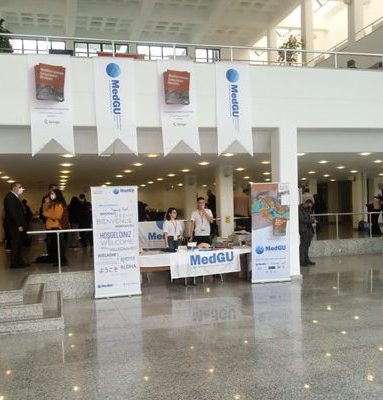
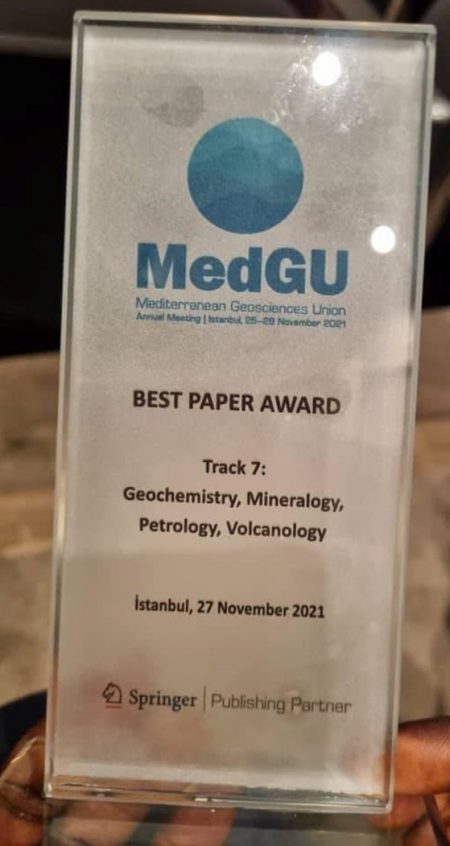
The most thrilling moment at the conference was when I was awarded the Best Paper in Track 7: Geochemistry, Mineralogy, Petrology, and Volcanology. My merriment was so infectious, and the euphoria was beyond imagination because the award would go a long way to sharpening my career path. Another highlight of the conference for me was interacting with people from diverse backgrounds and all walks of life. In fact, conversations about research ideas dominated nearly all our lunchtime discussions each day. I attended the MedGU-21 with the aim of networking with geoscientists across the globe to establish transboundary collaborations. Therefore, the conference afforded me opportunities for meeting professional colleagues from diverse institutions and fields of specialization and interests. I was able to discuss possibilities of research collaborations with many scientists, notably Prof. Dr. Ben Hamouda Mohamed Fethi (Isotope Hydrology and Geochemistry), Associate Prof. Dr. Domenico Morabito (Phytoremediation and Heavy Metal Geochemistry), Dr. Jacques Bezuidenhout (Nuclear and Radiation Physics), Dr. Enovwo Erere Odjegba (Water Resources Management), and Mr. Mark Prempeh (Petrophysics). After several discussions, we resolved to combine our expertise to address some critical problems in geoscience using the data-model approach. Indeed, without the support from the EAG Early Career Science Ambassador Program I received to attend the MedGU-21, such a multi-disciplinary collaboration would not have been possible.
My advice to early career scientists who want to attend the next MedGU is to book their flights and accommodation at least two months ahead of the conference date as they get exceptionally expensive closer to the date. Another important thing is to get acquainted with the tracks, sessions, courses, plenaries, workshops and other events prior to the conference date to avoid being flustered by the concurrent activities. Lastly, if you identify any potential geoscientist or expert in your field that you would like to meet during the conference, let the person know ahead of time because schedules can fill up at MedGU.
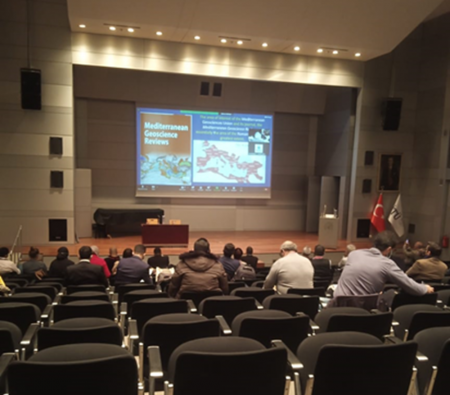
About the author
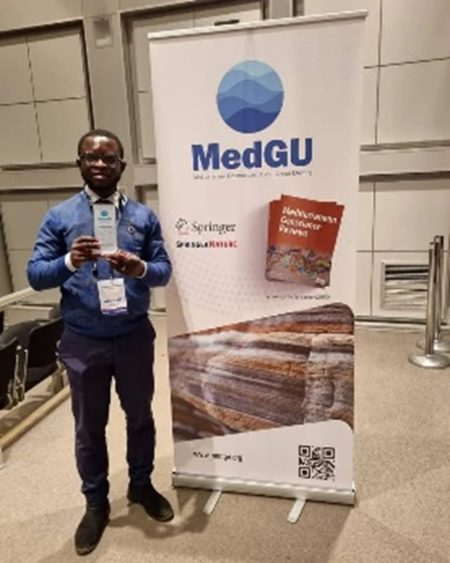
Emmanuel Daanoba SUNKARI is a PhD Scholar of the Scientific and Technological Research Council of Turkey at Niğde Ömer Halisdemir University, Turkey and currently a Technical Instructor at the Department of Geological Engineering of the University of Mines and Technology, Ghana. His research aims to contribute significantly to our understanding of the petrology, genesis, and geodynamic setting of hydrothermal ore deposits using multidisciplinary and multi-scale approaches, supported by fieldwork and various high-precision analytical techniques. In this regard, his PhD research is focused on understanding the geology, mineralogy, geochemistry, and genesis of Fe-Zn skarn deposits in Çiftehan (Ulukışla-Niğde) area, south-central Turkey. However, his research also focuses on unravelling the geochemical evolution of groundwater, groundwater contamination sources, and health implications emanating from groundwater contamination (especially dental fluorosis); and suggesting remedial and mitigation measures to safeguard the health, social well-being, and livelihoods of people concerned.
Email: edsunkari@umat.edu.gh/emmanueldaanoba.sunkari@mail.ohu.edu.tr
